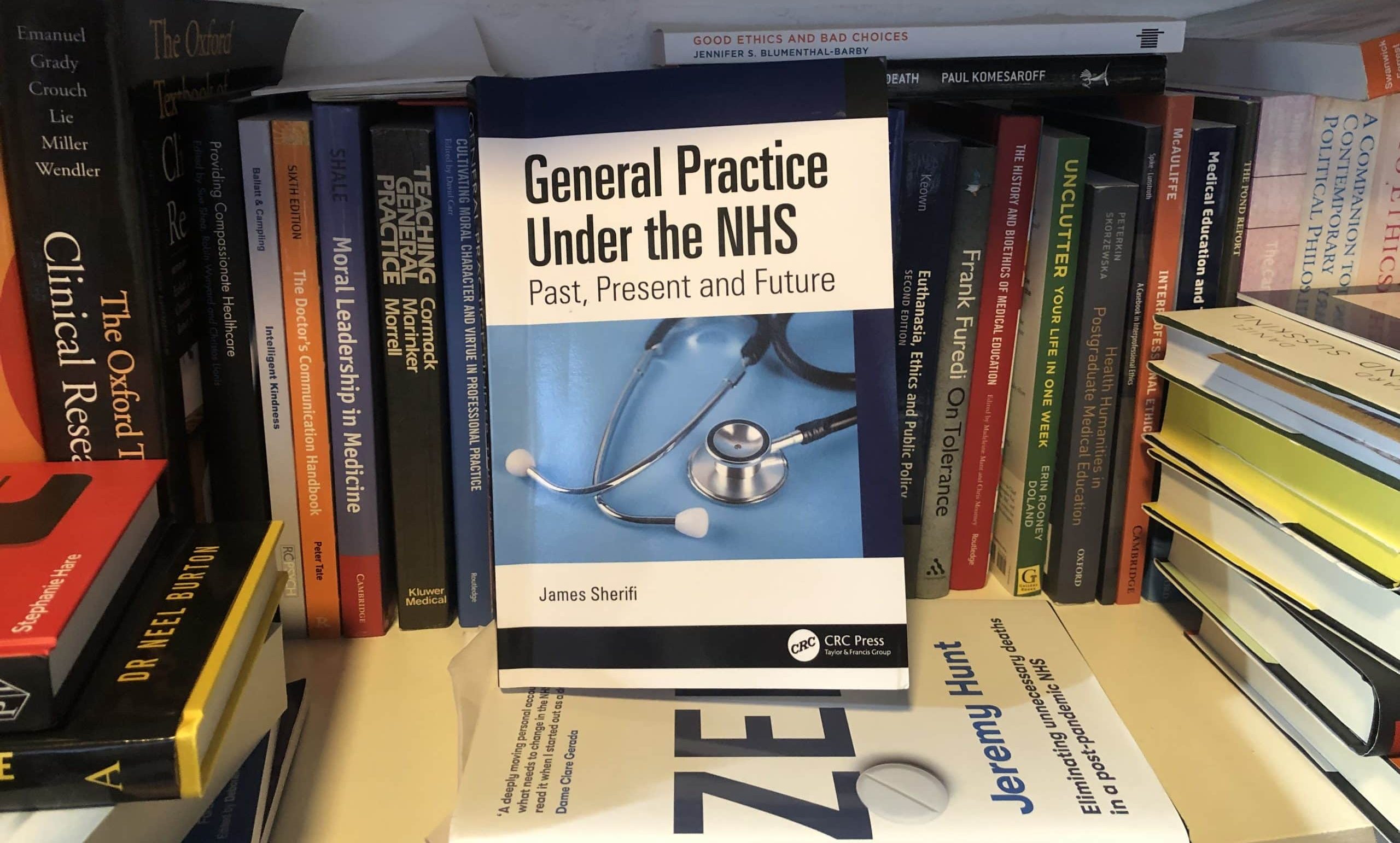Sarah Hargreaves is a researcher at the Mesothelioma UK Research Centre (MURC) based at the University of Sheffield. She is on Twitter: @harg_sarah
Clare Gardiner is a co-director of MURC and professor of palliative care. She is on Twitter: @claregardiner8
Emilie Couchman is an academic GP currently undertaking a PhD with MURC and working as a GP on a part-time basis in Northumberland. She is on Twitter: @DrEmilieCouch
Mesothelioma is a rare cancer, with most cases caused by workplace exposure to asbestos. While certain types of workers (for example, construction workers) are at greater risk of developing mesothelioma, the presence of asbestos in many public buildings (including schools and hospitals) means that we are all potentially at risk.
Although asbestos has been banned since 1999, Great Britain has the unenviable record of being a global leader in recorded mesothelioma mortality with of an average of around 2500 deaths per annum.1
Mesothelioma is often diagnosed at a late stage, and during the COVID-19 pandemic this issue was exacerbated.2 While access to treatment options has recently increased, prognosis remains poor with 1- and 3-year survival rates of around 40% and 10%, respectively.3
“… Great Britain has the unenviable record of being a global leader in recorded mesothelioma mortality … “
This outlook, and the potential for sudden and rapid deterioration, means that palliative care is a core necessity for both patients and families. This includes both generalist and specialist palliative care (depending on individual needs). Primary care is central to this, both in providing generalist palliative care and in referring to specialist care.
However, barriers can prevent early-stage engagement. A recent research project by the Mesothelioma UK Research Centre (MURC) highlighted how negative misconceptions of palliative care held by patients and family can prevent timely engagement, and, in addition, referral routes to specialist palliative care are inconsistent and can delay access.4,5
The MURC researchers, together with the charity Mesothelioma UK and a group of professional and public stakeholders, set out to develop new tools to encourage early-stage engagement with palliative care. Working with a creative design company and the MURC patient and public involvement (PPI) group ensured that these meaningful tools captured first-hand experiences.
The first tool is a short animation.6 Targeted at patients and families, it aims to demystify palliative care, address misconceptions, and highlight the benefits of engagement. When presented at a recent Mesothelioma UK Patient and Carer Day, attendees broke into spontaneous applause. Conversations with attendees confirmed that the animation had changed views; that palliative care was not something to fear but rather to embrace as a hopeful way of living well with mesothelioma.
The animation is a useful tool for opening conversations about palliative care with patients. It is free to download, upload onto websites, or screen in waiting rooms. While it focuses on mesothelioma, it has wider relevance to other life-limiting conditions. A recent invitation by a mesothelioma support group for MURC researchers to talk about the animation highlighted a key requisite of clinician conversations about palliative care. A member of the group told us how a conversation with a clinician had ‘sucked out’ any hope he had. This experience shows the need for sensitive conversations about palliative care. We think the animation can be a useful tool in setting the tone for positive conversations and is already being used by mesothelioma clinical nurse specialists (MCNSs) to support practice.
“We hope the infographic will provide useful information in smoothing pathways to palliative care and in enhancing patients’ lives.”
The second tool developed is an infographic.6 Mesothelioma is a rare condition and this can present challenges for primary care healthcare professionals, particularly around how and when to discuss palliative care. Many healthcare professionals may not be familiar with the condition; however, we felt it was important to emphasise the sources of support and advice available to healthcare professionals.
The infographic provides basic information, explains the role of palliative care in mesothelioma, and signposts to sources of help. It is free to download and share. A key source of support are MCNSs. There are 31 MCNSs, funded by the charity Mesothelioma UK, providing a network of specialist mesothelioma care across the UK. A main finding of the MURC Palliative Care Study was that MCNSs have expertise in palliative care and are vital in supporting patients’ needs.4,5 We hope the infographic will provide useful information in smoothing pathways to palliative care and in enhancing patients’ lives.
We aim to increase uptake of both generalist and specialist palliative care and normalise this as a way of living well with mesothelioma. Members of the MURC PPI group shared a common narrative of initial fear and apprehensiveness but found that palliative care benefitted their lives once this barrier was overcome.
References
1. Health and Safety Executive. Mesothelioma statistics for Great Britain, 2022. 2022. https://www.hse.gov.uk/statistics/causdis/mesothelioma/mesothelioma.pdf (accessed 23 Nov 2022).
2. Hargreaves S, Clayton K, Creech L, et al. Impact of Covid-19 on lung cancer and mesothelioma specialist nurses: a survey of experiences and perceptions. Eur J Oncol Nurs 2022; 61: 102207.
3. Royal College of Physicians, National Mesothelioma Audit, Mesothelioma UK. National Mesothelioma Audit report 2020 (audit period 2016–18). 2020. https://www.rcplondon.ac.uk/projects/outputs/national-mesothelioma-audit-report-2020-audit-period-2016-18 (accessed 23 Nov 2022).
4. University of Sheffield. Palliative care and the role of clinical nurse specialist. https://www.sheffield.ac.uk/murc/our-research/palliative-care-and-role-clinical-nurse-specialist (accessed 23 Nov 2022).
5. Gardiner C, Harrison M, Hargreaves S, Taylor B. Clinical nurse specialist role in providing generalist and specialist palliative care: a qualitative study of mesothelioma clinical nurse specialists. J Adv Nurs 2022; 78(9): 2973–2982.
6. Mesothelioma UK. Palliative care. https://www.mesothelioma.uk.com/for-healthcare-professionals/palliative-care (accessed 23 Nov 2022).
Featured photo by Hannah Busing on Unsplash.











